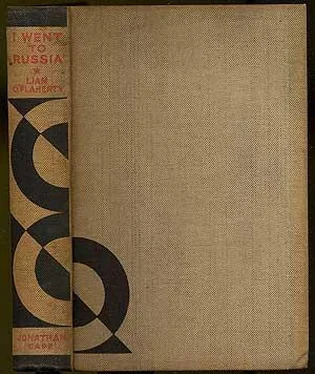The day before we left Norway, the captain of a little Norwegian mail-boat that lay alongside came aboard to inspect our ship. Afterwards he invited the doctor and myself to come aboard his ship for a glass of good beer from Bergen. We did so. His beer was excellent. It was odd to see the difference between his ship and ours. His saloon was furnished like the drawing room of an old family hotel. There were rugs and clocks and anti-macassars and antlers and all manner of unnecessary ornaments. He himself was a kindly old father of a family, restrained in speech, shy of expressing a decided opinion, mild in his attitude towards life, a man who fitted beautifully into his groove, was happy, did his duty well and wished for no change.
How different he was from the doctor! While I talked to the captain, the doctor fidgeted about, refused to drink his beer, scowled and continually tried to turn the conversation into controversial channels. More than ever he looked like a man who had no time to waste, a man interested in amusement solely as an experience, a greedy, ambitious fellow driven on by an insatiable passion. Suddenly he jumped to his feet and cried:
‘I very much like inspect your ship, captain.’
The captain bowed and said it would give him great pleasure.
‘But please excuse my little old ship’ he said. ‘She is very old and out of date like myself. Of course, I love her. I have been married to her for a long time. But I am not blind to her faults.’
‘So?’ said the doctor gloomily. ‘We regard ship simply as social tool. Not in such a way as human being. Old machines with us are scrapped.’
‘Alas!’ said the captain. ‘It’s becoming like that all over the world. But some of us. . .’
His voice ended in a mumble as we went along an alley-way. He showed us the quarters for the first and second class passengers and then suggested leading us back into the saloon for another glass of beer. But the doctor insisted on seeing the crew’s quarters. It was obvious that the old skipper was not very enthusiastic, but he led the way down into the bowels of the little ship, into an evil-smelling hole where one could hardly breathe. There, in a tiny room, a number of sombre men were huddled together, living in a state of sordidness that shocked me and made the captain blush.
I hated seeing those fine Norwegian seamen put to shame by being inspected like wild animals or criminals. One poor fellow was washing his feet in a filthy bucket. The expression on his face was humiliating.
As the captain led us back to the saloon, he said:
‘You see, on this little ship there is no room for. . .
‘Yes?’ cried the doctor gruffly. ‘I understand. On capitalist ship there is room only for profit-making cargo and for first class passengers. For workers there is only such a place, a hole near ship’s bottom, with bilge, where situation is very much against laws of Soviet hygiene. It is terrible. Goodbye. Thank you very much.’
On our way back to the ship he kept smiling.
‘The situation is such,’ he said. ‘Such an old fool has no social life. He loves ship but he does not love his brothers the crew.’
‘That is only natural,’ I said. ‘If he loses the ship he cannot get another very probably. But he can get a different crew very probably every day in the week.’
‘But that is inhuman,’ he said.
I was going to argue with him when I suddenly remembered that it was both useless and immoral to argue with a man who has a religion. And yet one cannot help smiling at the inconsistency of Marxian logic. For if a man’s attitude towards life is governed by his economic position in life, surely it would have been immoral for the captain to care more for the crew than for the ship. And if there is no god all things are equally just and permissible, the exploitation of the proletariat by the capitalist as well as the revolutionary activities of the proletariat, the slaughter of revolutionaries by the police as well as the slaughter of the bourgeoisie by the red terror.
The captain was very angry at the speed with which his ship was loaded. As a matter of fact the capitalists of Odda managed to get him out of port on the eve of the first of May. Wondering why he was not in a hurry to get to Leningrad with his cargo as soon as possible, in order to help finish the Five Year Plan in four years, I questioned him on the matter. He smiled and said:
‘Very good fun May day. Rival processions of Communists and Social Democrats. I would like very much to see it.’
But we had our own demonstration at sea. The stewardesses painted revolutionary slogans on banners and these were hung up.
‘What sort of celebration are we going to have?’ I asked the chief mate.
‘You see,’ he said. ‘Jews march up and down ship with red flags.’
I saw no Jews marching on the waters with banners. But we had a special meal for all the crew in the dining room. The Jews made speeches, giving thanks for the successful propaganda made in Norway, for the cargo that had been secured for the fulfilment of the Five Year Plan in four years and praying for the speedy deliverance of the worker from the bondage of capitalism.
And then we sailed out of the European Egypt into the Promised Land of Russia.
Chapter VI. I Reach The Promised Land
As we approached Leningrad I began to Feel nervous. Although I had by now become exceedingly friendly with the crew (except with the female third mate, who remained aloof, possibly in order to make an impression on me), the feeling of discomfort I experienced on joining the ship increased almost to a state of fear. There were positively no grounds for it but it persisted in spite of all my efforts to become a Bolshevik.
I thought the captain became more sinister as we approached Russia. The air of intrigue increased. Josef, the gossip, began to frequent my company on deck, whispering more mischievous tittle tattle. He told me among other things that the chief mate had been lampooned in the ship’s wall paper for having got drunk and conducted himself in a lecherous and counter-revolutionary manner with the foreign engineers at Odda. I heard of quarrels between the chief engineer and the captain. I heard of dissatisfaction among the crew about food. Even the doctor, that revolutionary of spotless integrity, was accused.
‘Oh! Yes!’ said Josef. ‘On this ship he is a proletarian and he mixes with the crew on an equal footing. But if he meets the common members of the crew in the streets of Leningrad, he passes by without salutation. Just a casual nod as to a servant.’
And then, in order to turn his mischievous conversation into a joke, he said to me:
‘I see you are learning the Russian alphabet. How many letters are there?’
‘Twenty-eight, I think. But I’m not sure.’
‘Never mind’ said he. ‘Only seven are necessary.’
‘Why? How do you mean?’
‘I and A for the automatic telephone. C and P for the Communist Party. G, P and U for the rest of us.’
Then he skipped off singing.
It was the dynamic power of Russia that the ship began to feel. Just as the ship’s power disintegrated on approaching Norway, so it now disintegrated on approaching Russia. Before, it was sapped by something lifeless, which it could not infuse with its own vitality. Now it was swallowed by a turbulent force, into which it rushed whirling. That was the force that terrified me and which caused all the murmurs of discontent aboard the ship.
The weather being fine, the men had target practice every day on deck. Shore rations were distributed. They prepared for going on shore exactly like soldiers going into camp.
I was looking over the side as we passed a small island off the Baltic coast. The captain approached me and said:
Читать дальше












